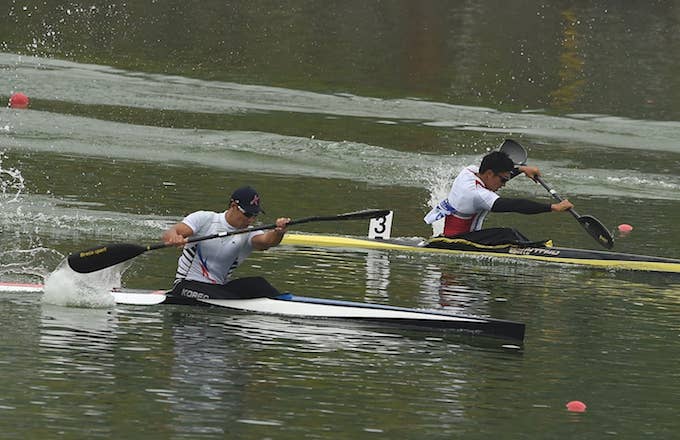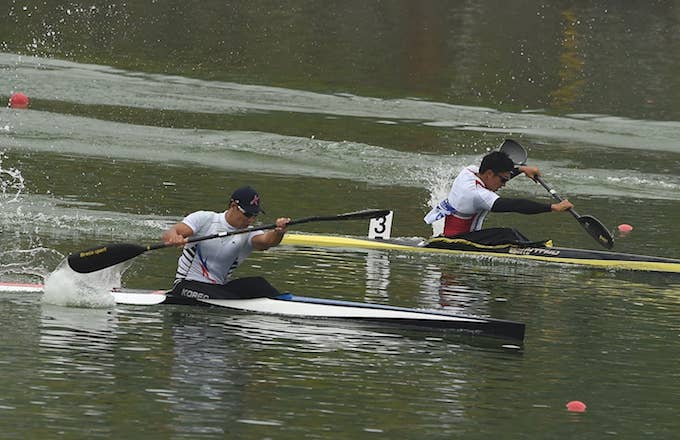
If you didn’t know, now you know: the world of Olympic kayaking is cutthroat. NPR reports that Yasuhiro Suzuki, a Japanese kayaker, has confessed to secretly lacing a competitor’s drink with an anabolic steroid so that his competitor would get banned and he would qualify for the 2020 Tokyo Olympics. His rival, Seiji Komatsu, did get banned—but now that Suzuki has confessed, the ban has been reversed, and Suzuki himself has been banned for eight years.
The Japan Anti-Doping Agency found that Suzuki had contaminated Komatsu’s water bottle with a banned substance at the 2017 Canoe Sprint Japan Championships. Komatsu subsequently failed a doping test at that event, and failed to qualify for the Olympics as a result. But now the Agency has overturned Komatsu's ban, and slapped a ban of eight years of Suzuki.
The Japan Canoe Federation revealed that Suzuki’s methods were not limited to lacing drinks: he was also found to have repeatedly messed around with fellow competitor’s tools or gear at previous competitions. But this doping scheme happened during the 2017 World Championships in the Czech Republic, where both athletes were seen as top contenders with a chance at the Japanese Olympic team. Suzuki had actually planned to retire after the 2016 Olympics in Rio, but returned at the behest of family and friends, according to Japanese newspaper The Asahi Shimbun
Suzuki came forward himself and confessed. According to Japanese media, Suzuki felt guilty about the ban imposed on Komatsu.
"We apologize for causing trouble, not only to canoe athletes but also to those of all other sports," JCF Director Osahiro Haruzono said, The Asahi Shimbun reports.
“If it is a fact, it is extremely regrettable. It is the kind of thing that has never been heard of in Japan’s sporting history,” said Daichi Suzuki, commissioner of the government’s Japan Sports Agency. “It's the first time I have heard of such a malicious case.”
The canoeing federation already has plans to prevent disingenuous schemes like this to happen again. The federation has pledged to create a designated storage location for athletes’s drinks during competitions. In the spirit of education, the federation will also create a speaking program and invite lecturers to speak about justice in sports and the spirit of fair play in competitions.

